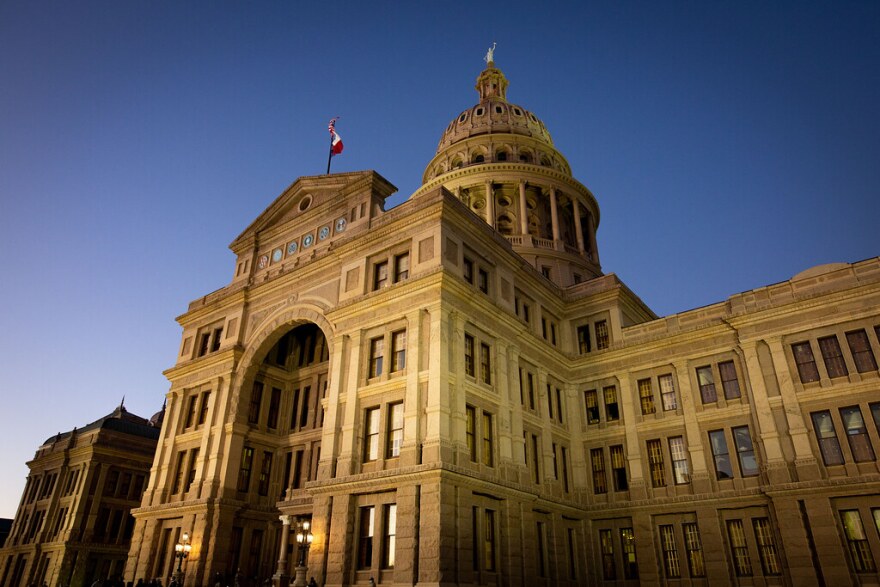A Texas law that would have undone local laws was ruled unconstitutional by a Travis County state judge Wednesday, days ahead of when it was slated to take effect.
The law, referred to as the "Death Star" bill, would limit cities' abilities to write laws that don't conform with state laws that regulate transportation, agriculture, labor and property codes, among other areas. Houston, San Antonio and El Paso sued the state, arguing the law eliminated cities' abilities to govern themselves.
Cities with Democratic leadership have argued the law, slated to go into effect Friday, is an attempt by the GOP-led state Legislature to overrule protections, though conservative-leaning cities also signed on in support of the suit.
Arguing for Houston, Collyn Peddie said the law was "nebulous" and that cities couldn't reasonably expect to know which of their local rules would run afoul of it.
"There is nothing in American jurisprudence like this. I've never seen anything like this," she said. "The law professors who were helping us have never seen anything like this."
The law could invalidate local protections banning discrimination in hiring, for example. If a city wanted to enact more stringent rules on payday lending, it couldn’t legally do so without legislative approval.
The law also allows residents to sue a city for policies that are out of step with state laws.
Peddie argued this threat of lawsuits meant cities would either have to comb through their rules to determine what was legal or stop enforcing local laws altogether.
"The city is saying, 'We are the people responsible for implementing the statute, and we have to know what it says,'" she said. "The cities have to know what it is that they're enforcing — and they have to be able to challenge a vague law."
The law is part of a trend of GOP lawmakers trying to undo policies enacted by largely Democratic leaders; rules regarding ride-hailing regulations, paid sick leave and bans on fracking within city limits have all been targeted by lawmakers in the last 10 years.
Attorneys for the Texas attorney general argued unsuccessfully Wednesday that the Texas Supreme Court has sided with the state in similar instances — pointing to a 2018 decision in a lawsuit against Laredo's single-use bag ban.
"This issue will come up, I'm certain, pretty soon," Charles Eldred, who argued on behalf of the state, said. “It’s not true that on Sept. 2 they [cities] need to start not enforcing their ordinances. That may be a smart thing to do, depending on the ordinance and depending on state law that might apply to it. But there’s nothing in the statute … that says there’s any additional penalty to it."
Peddie argued the potential penalty outlined in the law is a "cut-and-paste" version of the state's abortion ban: It establishes penalties, while relying on lawsuits for enforcement.
The state's arguments ultimately didn't sway Travis County District Judge Maya Guerra Gamble.
"I do believe that their argument is the right one," she said, referring to the cities' claims.
Later Wednesday, the attorney general's office appealed the ruling to the Texas Third Court of Appeals. Paige Willey, a spokesperson for the office, argued Texans will still be able to file lawsuits against local rules — despite the judge's ruling.
"[T]he ruling is incorrect," Willey said, adding that she expects the law will go into effect Friday.









